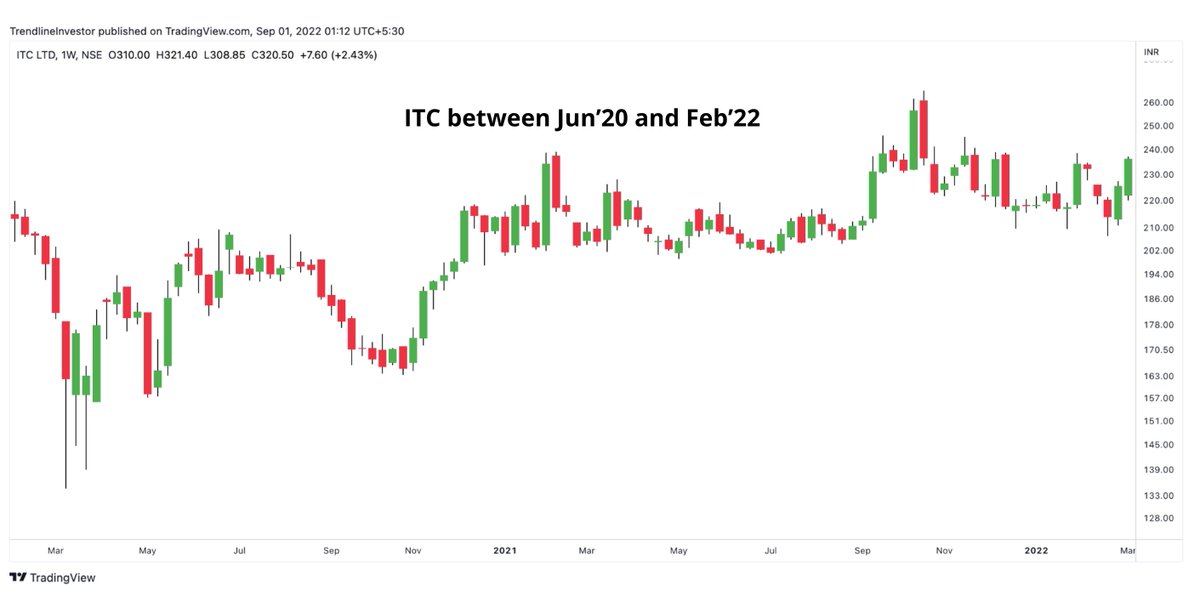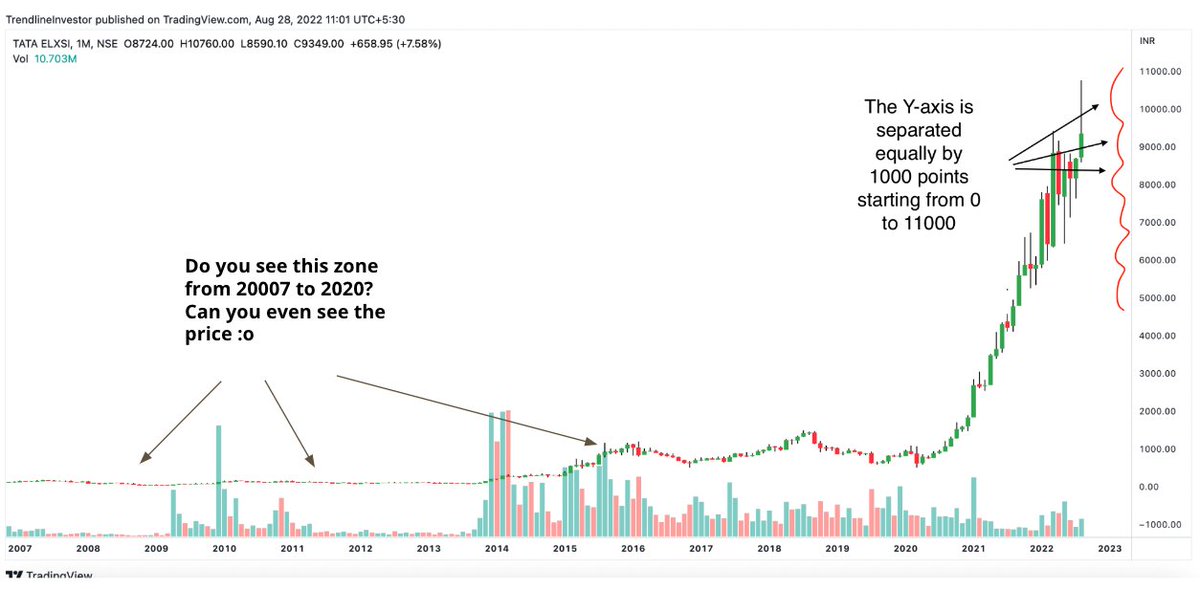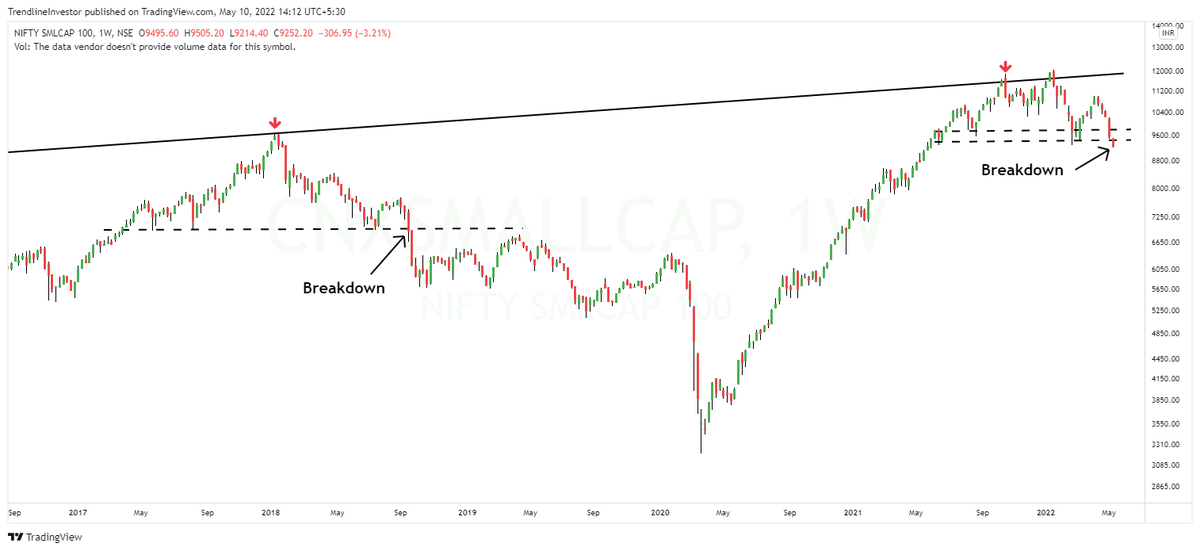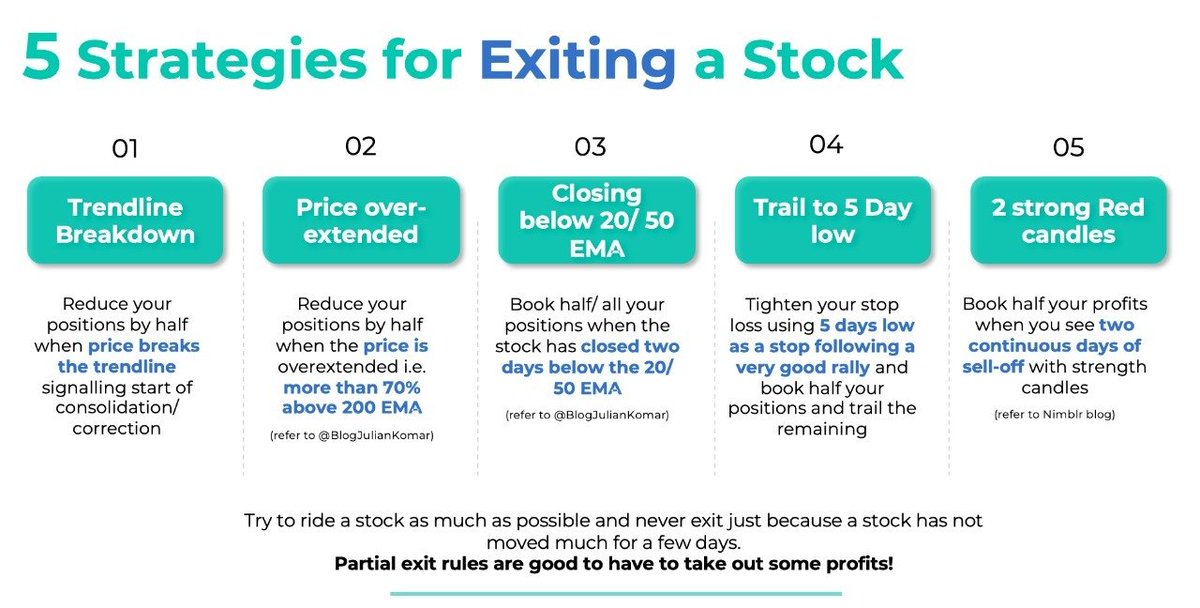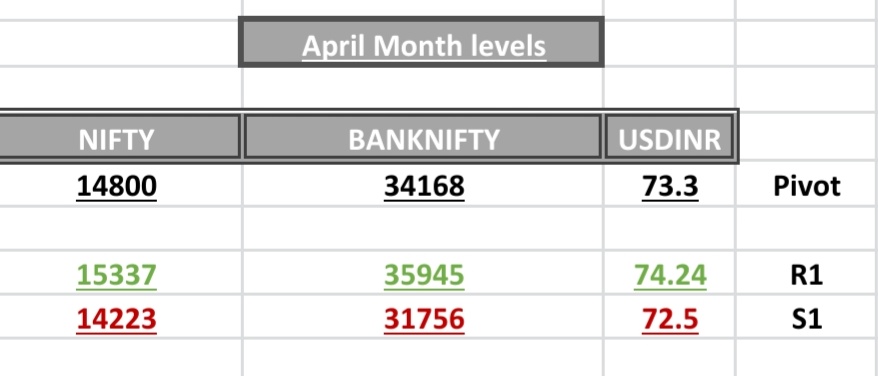#BEML quarterly chart (22 years)
- Stock has formed a massive 16 yr ascending triangle
- FIIs have increased stake from 1.3% to 6% in the last 1 yr
- Excellent relative strength in the last few weeks
- Daily close above 1900 can trigger a good rally
- Stop at 1740
#stockideas
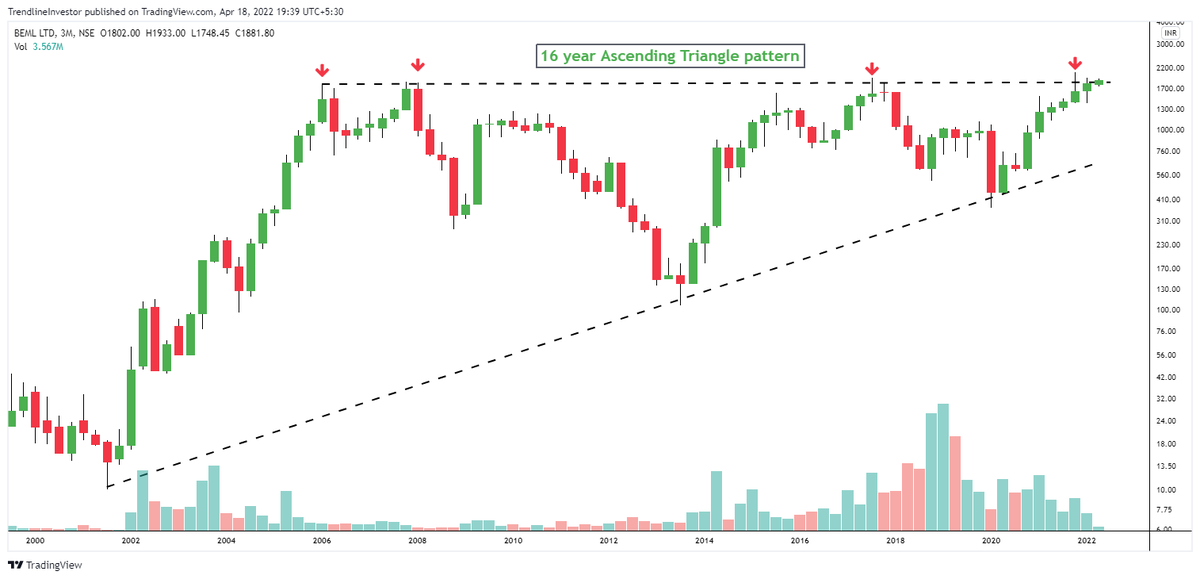
More from Trendline Investor
#ICICIBANK low made 670 and now 800.
Channel reversals are the best price points to buy a stock or add more.
We saw this in #SBIN as well 👇https://t.co/EATq54Pgbw
These stocks have a long way to go! https://t.co/wUyJUqUlUE
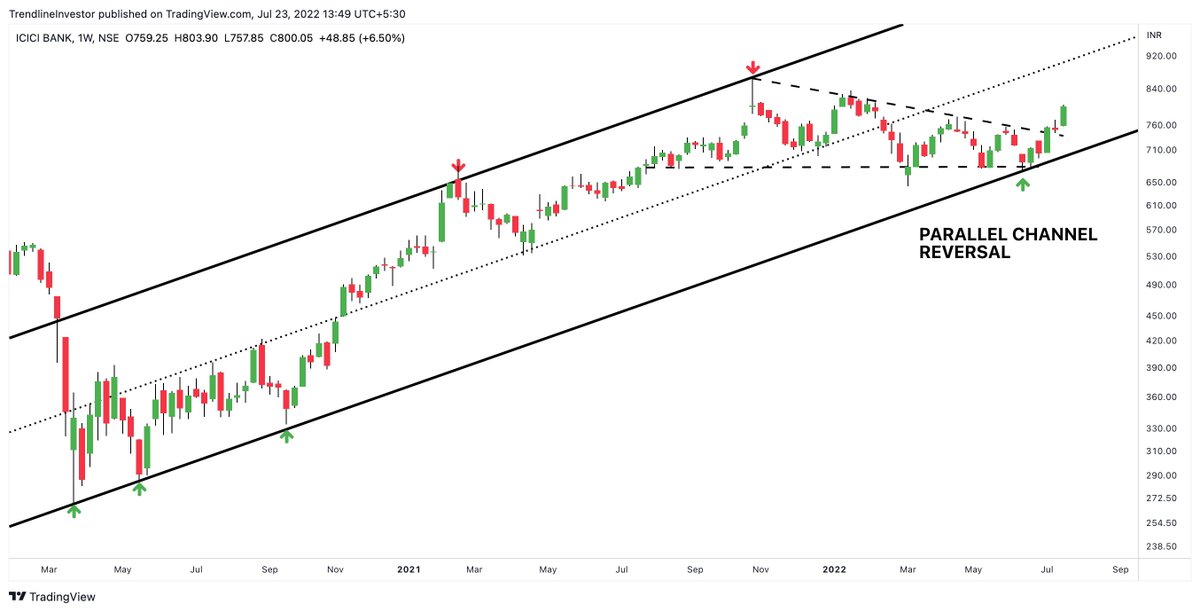
Channel reversals are the best price points to buy a stock or add more.
We saw this in #SBIN as well 👇https://t.co/EATq54Pgbw
These stocks have a long way to go! https://t.co/wUyJUqUlUE

#FnOstock #SBIN has completed a 9 month time correction towards the primary trend line & is all set to head higher from here.
— Trendline Investor (@dmdsplyinvestor) July 11, 2022
This could also be a #SIP stock considering it broke out from a decade long consolidation in Feb'21.
Might continue to outperform #Nifty & #Banknifty pic.twitter.com/mYk4exvOn7


